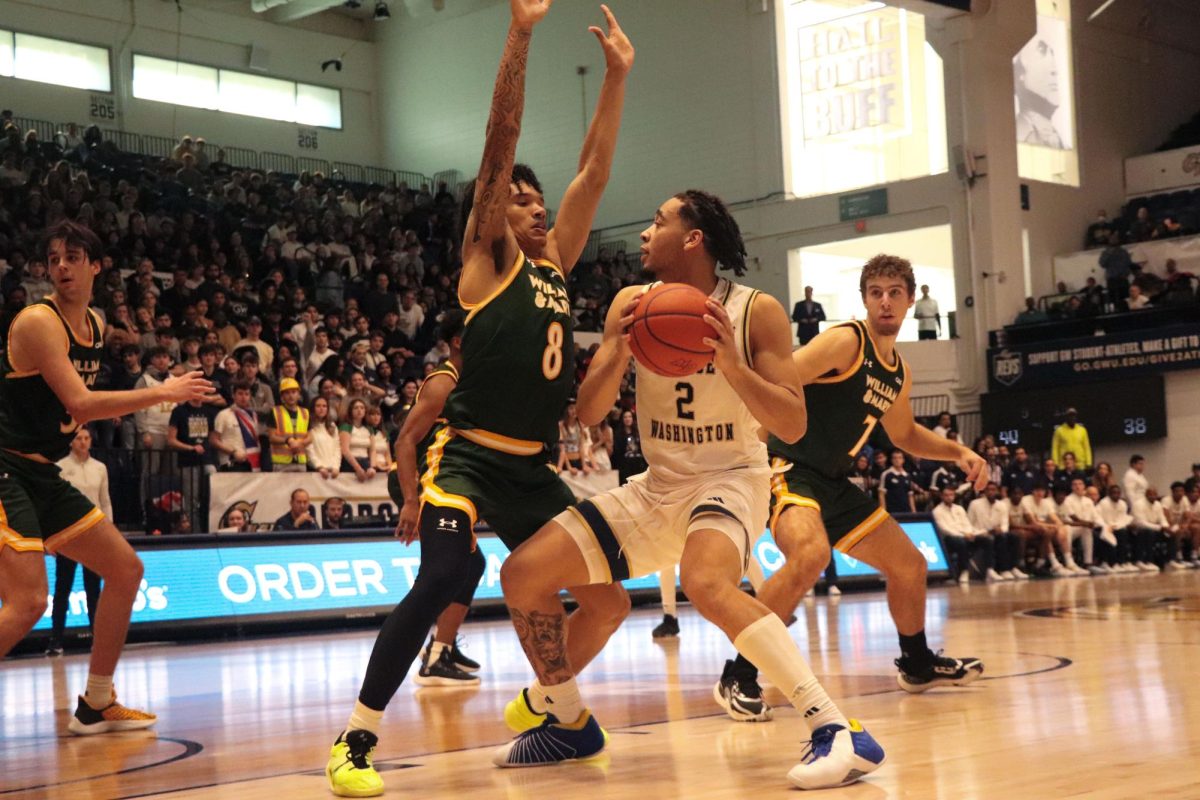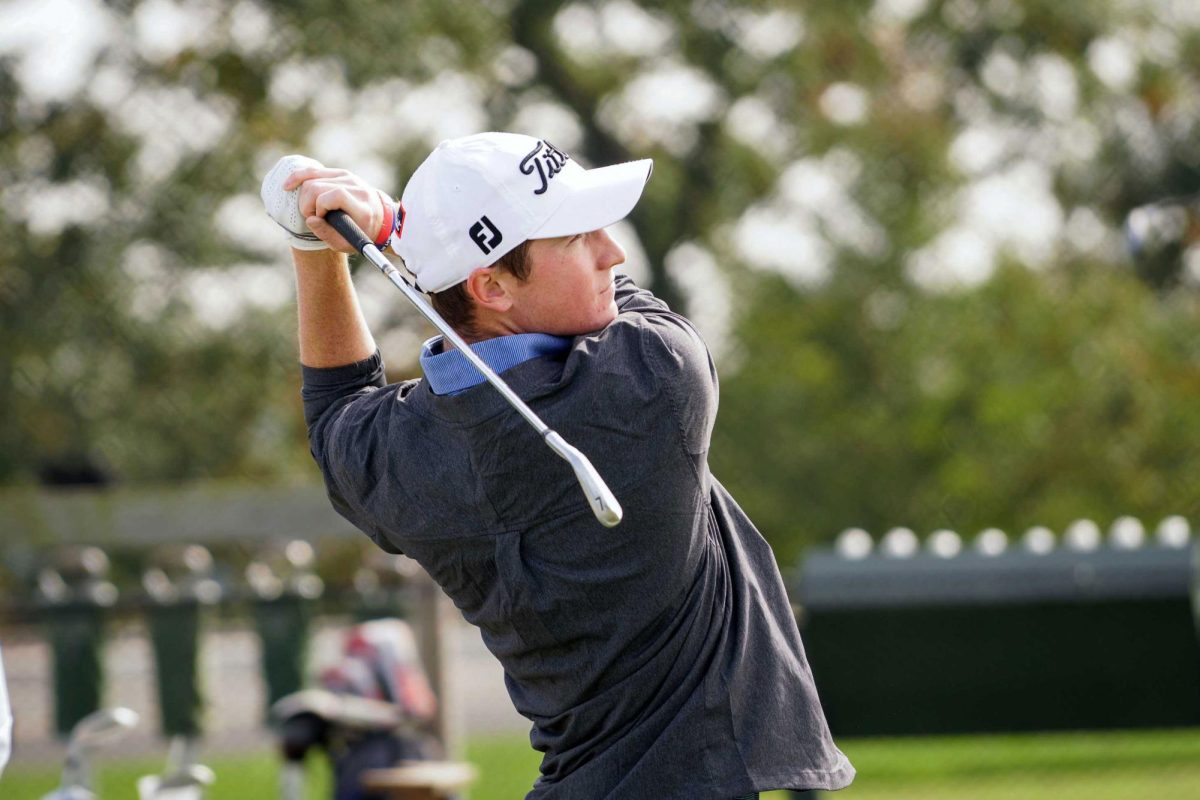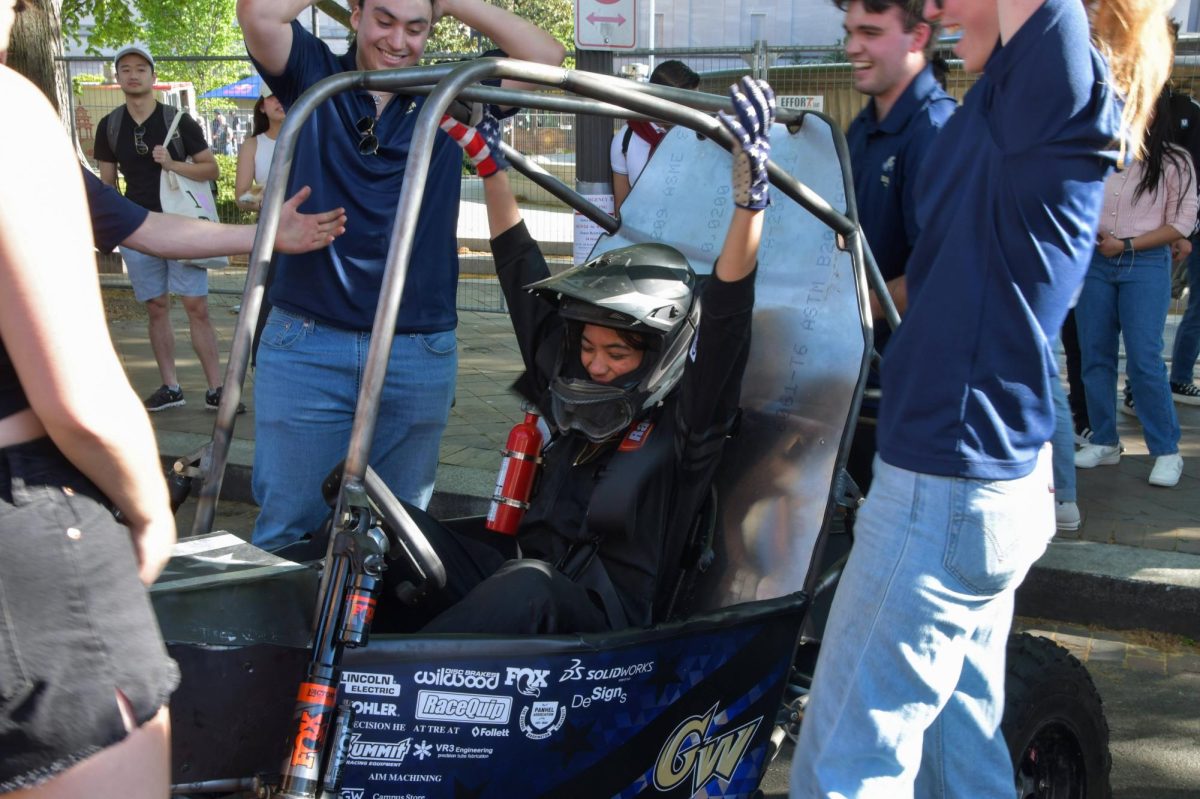Arnold “Red” Auerbach, the Hall of Fame Boston Celtics coach, GW alumnus and cigar-smoking champion, died Saturday night of a heart attack at 89.
Auerbach, a revolutionary basketball mind that insisted on niceties to deal with his players, won 938 regular-season games and nine NBA championships as a head coach. The basketball’s professional writers’ association named him the greatest coach in the sport’s history.
He played basketball at GW and graduated in 1940 with an undergraduate degree in physical education, earned his master’s degree in education in 1941 and was honored with a doctorate of public service in 1993. He consistently attended GW basketball games for more than 15 years and his chair in the Smith Center is colored red, a stark contrast to hundreds of blue seats in GW’s season-ticket holder section.
The Brooklyn, N.Y., native was known for his flare as much as his desire for simplicity. He once punched the owner of the Atlanta Hawks over an argument about the height of the basket and was often known to complain about the overwhelming introductive ceremonies given to most NBA teams before games. For many years, the Celtics were an anomaly as a team without cheerleaders or dancers.
Auerbach coached the Boston Celtics from 1950 to 1966 and served in the team’s front office until his death. His omnipresent cigar, which appeared after home victories, is immortalized on a banner in the Smith Center and in the minds of millions of basketball fans worldwide.
Auerbach, who won the GW Distinguished Alumni Award in 1971, also set a standard in 1950 by making Chuck Cooper from Duquesne the first African American selected in the NBA Draft.
Robert Chernak, vice president for Student Academic Support Services, told The Hatchet in an e-mail that the University will honor Auerbach this basketball season.
GW Director of Athletics Jack Kvancz, who saw Auerbach weekly for almost 15 years, told The Hatchet Thursday that Auerbach planned to make the trip to Boston for the Celtics’ opener.
Kvancz told The Hatchet in 2003 that Auerbach was a “father figure.” When Kvancz was a student at Boston College, he played for Bob Cousy, a Hall of Fame member who played for Auerbach on the Celtics.
“Beside being the best damn basketball coach ever, my relationship was with the man,” Kvancz said Sunday. “I had a tremendous amount of respect for what he stood for.”
“Beside being the best damn basketball coach ever, my relationship was with the man,” Kvancz said Sunday. “I had a tremendous amount of respect for what he stood for.”
Despite an oxygen tank and a wheelchair, Auerbach accepted the Navy’s Lone Soldier Award in Washington Wednesday night with Kvancz in attendance. Auerbach played cards every week, Kvancz said, and tried to stay active despite deteriorating health. But mentally, Kvancz said Auerbach was “sharp as a tack.”
“(Red) never, never told the same story twice,” Kvancz said about the coach, who was famous for his stories. “He always remembered who he told the story to.”
Kvancz was part of a lunch group that met at China Doll in Chinatown every Tuesday morning at 10:45 a.m. Other members of the group included former Washington Post sports columnist and author John Feinstein, former Washington Post sports editor George Solomon and legendary Washington basketball coach Morgan Wooten. GW head coaches Karl Hobbs and Joe McKeown were often guests at the lunch, which inspired a 2004 book by Feinstein and Auerbach entitled “Let Me Tell You a Story.”
Auerbach attended men’s and women’s basketball practices at GW frequently, but offered advice only on request, he said. One time, McKeown took his advice and it has affected the GW athletic department until today.
“He’s the reason I’m still here. I was going to take the job as the head coach of the New York Liberty in the WNBA (in 1997), and he talked me out of it,” McKeown said in 2004.
Auerbach discussed his relationship with Hobbs when the coach came to GW in 2000. According to Feinstein’s book, Hobbs came to lunch and Auerbach told him that he is “not Jim Calhoun. You don’t have his resume yet. That means you can’t jump up and down or get on the referees the way he does.”
In his lifetime, Auerbach maintained close ties to Washington and GW. He lived in the District since 1937, when he was accepted to GW. In addition to the banner, the Smith Center has a plaque outside with Auerbach’s likeness and name. GW hosted the Red Auerbach Classic from 1992-1997 and 2000-2002. The Colonials never lost the tournament.
“It’s my alma mater,” Auerbach told The Hatchet in 2004. “That in itself is enough (for me to come back). I always felt that they were very good to me. I got a couple degrees-actually three degrees-from GW. And this is just my way of saying thanks.”
Chernak, who was hired in 1988, got the Hall of Famer involved in the University upon arrival in Foggy Bottom.
“It has been a great honor for me personally to have had the opportunity while at GW to become friends with Red Auerbach,” Chernak said in an e-mail to The Hatchet. “Being a lifelong Boston Celtics fan, I never thought I would have an opportunity to meet Red, let alone spend countless hours with him over the years.”
Chernak and Auerbach played racquetball frequently with the coach often emerging as the victor, Chernak said. In a story in The Hatchet in 2004, Auerbach and Chernak described an incident where the GW vice president caused the coach, then in his 70s, to break a rib.
One of the NBA’s greatest players and the successor to Auerbach as the coach of the Celtics was Bill Russell. Auerbach took Russell in the 1956 NBA Draft on advice from his former GW coach, Bill Reinhart.
Auerbach’s coaching career started in the District with St. Alban’s school while he was a graduate student at GW in 1940 and 1941. After a stint in the Navy and a failed coaching experience with the defunct Washington Capitols, Auerbach became the assistant coach at Duke University in 1949, where he spent a brisk three months.






